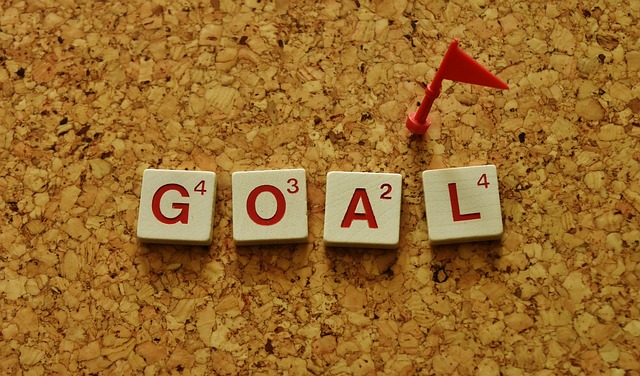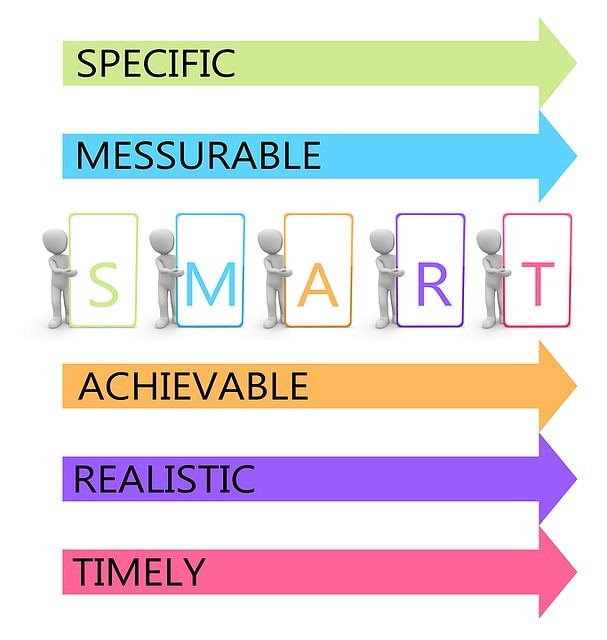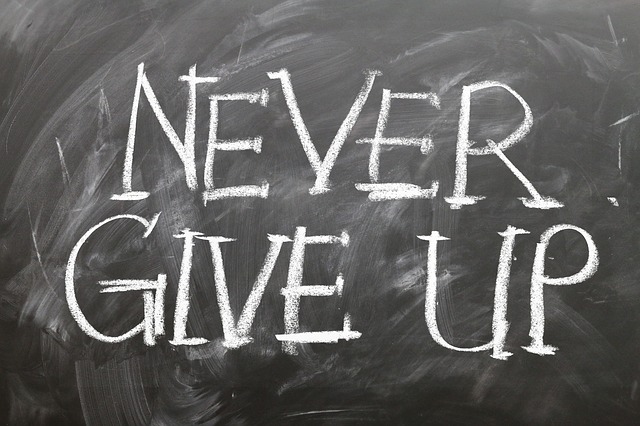SMART Goal Setting for Success | With Examples

SMART Goal Setting for Success | With Examples
Why is setting goals important?
Setting goals is important because it provides direction and motivation, and helps you to stay focused and on track. When you set a goal, you have something specific to work towards, which can help to keep you motivated and engaged.
Goals can also provide a sense of accomplishment and pride when you achieve them, which can boost your confidence and self-esteem.
In addition, setting goals can help you to manage your time and resources effectively, and can help you to prioritize tasks and activities. This can increase your productivity and efficiency, and can help you to make the most of your time and energy.
Finally, setting goals can help you to measure your progress and track your success - be it your professional success, or in your personal development. By setting specific, measurable goals, you can see how far you have come and what you have accomplished, which can be a great source of motivation and encouragement.
Overall, setting goals is an important part of achieving success in any area of life, and can help you to stay focused, motivated, and on track towards achieving your desired outcomes.

What Are SMART goals?
As mentioned, setting goals is an important part of achieving success in any area of life. However, not all goals are created equal. In order to set goals that are effective and achievable, it's important to follow the SMART criteria.
The SMART acronym stands for Specific, Measurable, Attainable, Relevant, and Time-bound. These five criteria can help ensure that your goals are well-defined and achievable, and can help you stay on track and make progress towards achieving your desired outcomes.
A specific goal is one that is clear and well-defined, with a specific outcome in mind. For example, instead of setting a goal to "improve your fitness," a specific goal would be "lose 10 pounds in the next three months by exercising at least three times per week."
Measurable goals are those that can be quantified, so that you can track your progress and know when you have achieved them. In the previous example, the goal is measurable because it includes a specific number (10 pounds) and a time frame (three months).
Attainable goals are those that are realistic and achievable given your current circumstances. If a goal is too difficult or impossible to achieve, it can be demotivating and may lead to frustration and failure.
Relevant goals are those that are important and align with your values, goals, and priorities. For example, a goal to learn a new language may not be relevant if you have no interest in or need for that language.
Finally, time-bound goals are those that have a specific time frame for completion. This helps to create a sense of urgency and keeps you motivated to make progress.
The SMART goal-setting framework can be a powerful tool for helping you set and achieve your goals. By following these criteria, you can ensure that your goals are well-defined, realistic, and achievable, which can help you stay motivated and on track towards achieving success.

Who invented SMART goals?
The origins of the SMART goal-setting framework are not clear, and it is likely that the concept has been developed and refined over time by multiple individuals.
However, the term "SMART" was first coined by George T. Doran in an article published in the November 1981 issue of Management Review. In the article, Doran presents the SMART criteria as a tool for setting effective goals and objectives.
While the concept of SMART goal setting has been around for many decades, it has become increasingly popular in recent years as a way to improve goal-setting and achieve better results.
Today, the SMART framework is used by individuals and organizations alike as a way to set and track progress towards specific, measurable, attainable, relevant, and time-bound goals.
Who are the leaders in teaching about goal setting?
There are many individuals and organizations that are leaders in teaching about goal setting. Some of the most prominent leaders in this field include Tony Robbins, Brian Tracy, Zig Ziglar, and Stephen Covey.
These individuals are well-known for their books, seminars, and workshops on goal setting and personal development, and have helped millions of people to set and achieve their goals.
In addition, there are also many organizations that focus on teaching goal-setting skills. For example, the American Management Association offers workshops and seminars on goal setting, and the National Society of Leadership and Success offers a goal-setting program for its members.

What studies have been done on the benefits of goal setting?
There have been many studies on the benefits of goal setting, and the results of these studies have consistently shown that setting goals can have a positive impact on a person's performance, motivation, and overall well-being.
One study, published in the Journal of Applied Psychology, found that setting specific, challenging goals led to higher levels of performance and motivation than setting easy goals or no goals at all.
Another study, published in the Journal of Personality and Social Psychology, found that setting goals can increase self-control and self-regulation, leading to improved decision-making and problem-solving skills.
Additionally, several studies have shown that goal setting can improve mental and physical health. For example, a study published in the American Journal of Health Promotion found that setting and achieving health-related goals can improve overall health and well-being, and a study published in the journal Psychosomatic Medicine found that setting goals can reduce stress and improve mental health.
In fact, there is such a thing known as 'goal-setting theory', which is a psychological theory that suggests that specific and challenging goals lead to higher performance. This theory was developed by Edwin A. Locke and Gary P. Latham, who proposed that setting goals can serve as a motivator and help people focus their attention and efforts on achieving a particular outcome.
According to this theory, goals should be specific, challenging, and achievable, and should be accompanied by feedback and support to help individuals progress towards their goals.
So, there you have it - backed up by science and everything!

What would be an example of a SMART goal?
To help you on your way to setting SMARTer goals, I have put together an example of goals that you might set - whether you want to set personal development goals for your professional success, financial goals or even health related goals, such as to lose weight - setting clear goals is the first step to start moving your life in a positive direction.
Short and long term SMART goal setting examples:
Short term goal: Increase sales by 10% in the next quarter by implementing a new marketing campaign. (Specific, Measurable, Attainable, Relevant, Time-bound)
Long term goal: Save $50,000 for a down payment on a house within the next five years by setting aside $500 per month in a savings account. (Specific, Measurable, Attainable, Relevant, Time-bound)
Short term goal: Complete a 5k race in under 30 minutes by training three times per week. (Specific, Measurable, Attainable, Relevant, Time-bound)
Long term goal: Complete a master's degree in business administration within the next three years by taking two courses per semester. (Specific, Measurable, Attainable, Relevant, Time-bound)
Short term goal: Reduce stress levels by 20% within the next month by practicing meditation for 20 minutes per day. (Specific, Measurable, Attainable, Relevant, Time-bound)
Long term goal: Become fluent in Spanish within the next five years by taking weekly classes and practicing for at least one hour per day. (Specific, Measurable, Attainable, Relevant, Time-bound)
Examples of SMART goals for kids:
Homework Goals:
Specific: Complete all homework assignments for math class by the end of each week.
Measurable: Track progress by checking homework assignments as they are completed and recording the results in a notebook.
Attainable: Make sure that the goal is challenging but realistic, given the child's current abilities and circumstances.
Relevant: Make sure that the goal is important and aligns with the child's interests and priorities.
Time-bound: Set a specific time frame for achieving the goal, such as one week or one month.
Another example of a SMART goal for a child might be to Learn the piano, which might look like this:
Specific: Practice the piano for 15 minutes every day.
Measurable: Track progress by using a practice log to record the date and duration of each practice session.
Attainable: Make sure that the goal is challenging but realistic, given the child's current abilities and schedule.
Relevant: Make sure that the goal is important and aligns with the child's interests and goals.
Time-bound: Set a specific time frame for achieving the goal, such as one week or one month.
SMART goals for kids should be tailored to the child's age, abilities, and interests, and should focus on personal and academic development, as well as healthy habits and positive relationships.
By setting and working towards SMART goals, kids can learn important skills and develop a sense of responsibility and accomplishment.
Examples of daily goals?
Goals are normally something you would set over a longer timeframe, but you can break your main goals down into smaller, daily goals. Some daily goals examples might look like this:
Eating Healthy:
Specific: Prepare a healthy lunch to bring to work
Measurable: Pack a lunch that contains at least three food groups
Achievable: Plan and shop for ingredients in advance
Relevant: Eating a healthy lunch can improve energy levels and productivity throughout the day
Time-bound: Have the lunch packed and ready to go by 12:00 PM
Reading:
Specific: Spend 30 minutes reading a book before bed
Measurable: Track the number of pages read each night
Achievable: Choose a book that is engaging and at an appropriate reading level
Relevant: Reading before bed can improve sleep quality and promote relaxation
Time-bound: Start reading at 9:30 PM and aim to finish by 10:00 PM.
Other examples of daily goals might be to listen actively, try to resolve conflicts rationally, improve workplace relationships, practice public speaking skills, improve time management skills, perform early morning exercise or spend time working on other personal development goals related activities.

Should I write my Goals down?
It is generally a good idea to write down your goals. Writing down your goals can help to make them more concrete and real, and can provide a reference point for tracking your progress and measuring your success.
Additionally, writing down your goals can help you to organize your thoughts and prioritize your actions, and can provide a sense of accountability and motivation.
If you are setting personal development goals, it is a good idea to have a personal development plan which identifies areas you need to work on for personal growth - whether that's to learn new skills, improve existing skills or address limiting beliefs.
However, it's important to note that simply writing down your goals is not enough. In order to achieve your goals, you must also take action and work towards them consistently. Writing down your goals is a useful first step, but it is only one part of the process!

So, I have my written SMART goals - how do I go about achieving them?
Once you have written down your goals, the next step is to develop a plan for achieving them. This plan should include specific actions that you will take in order to move towards your goals, as well as a timeline for completing these actions.
To develop your plan, start by breaking your goals down into smaller, more manageable tasks. These tasks should be specific, measurable, attainable, relevant, and time-bound, just like your goals. For example, if your goal is to lose 10 pounds in the next three months, your tasks might include going to the gym three times per week, eating a healthy diet, and tracking your progress using a fitness app.
Once you have identified your tasks, create a timeline for completing them. This timeline should include specific dates and deadlines, and should be realistic and achievable. Make sure to factor in any potential obstacles or challenges, and be prepared to adjust your plan as needed.
As you work towards your goals, track your progress and celebrate your successes along the way. This can help to keep you motivated and on track, and can provide a sense of accomplishment and pride.
Here are 10 of our favourite motivational goal setting quotes:
"A goal without a plan is just a wish." - Antoine de Saint-Exupéry
"The only way to do great work is to love what you do." - Steve Jobs
"Setting goals is the first step in turning the invisible into the visible." - Tony Robbins
"The only limit to our realization of tomorrow will be our doubts of today." - Franklin D. Roosevelt
"People with goals succeed because they know where they're going." - Earl Nightingale
"The only way to achieve the impossible is to believe it is possible." - Charles Kingsley
"The road to success is always under construction." - Lily Tomlin
"The future belongs to those who believe in the beauty of their dreams." - Eleanor Roosevelt
"You don't have to be great to start, but you have to start to be great." - Zig Ziglar
"A goal is not always meant to be reached, it often serves simply as something to aim at." - Bruce Lee


Comments